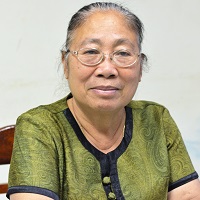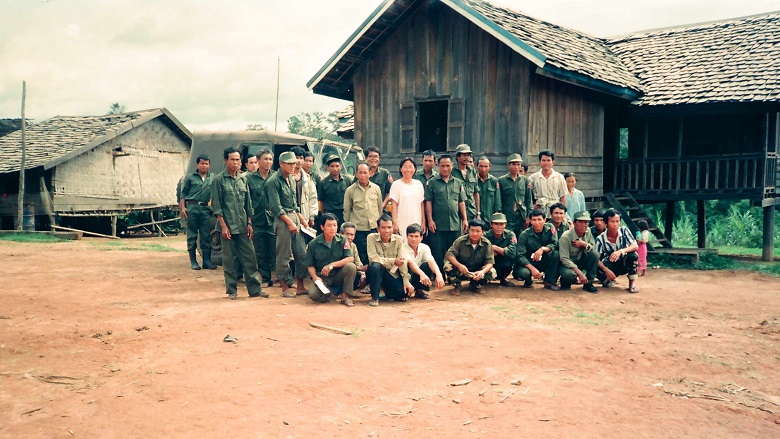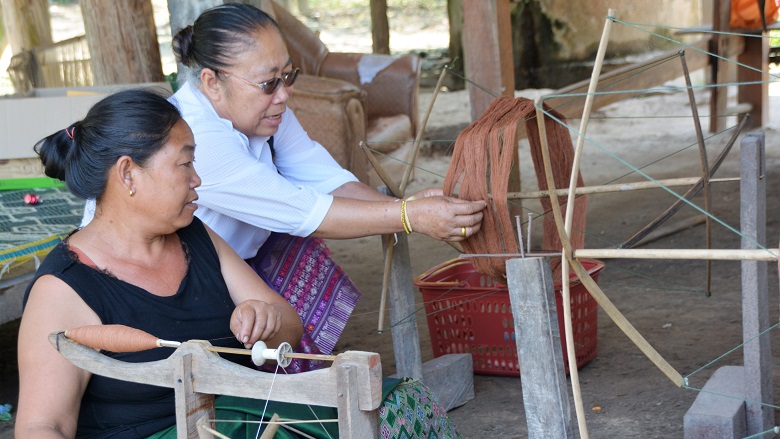Keoula began her involvement with NT2 helping with the village consultations prior to resettlement. At that time, it was difficult for a young woman to earn respect working side by side with men, as women were perceived to be weaker and less educated. The remoteness of the villages in those days was an additional challenge, but Keoula remained passionate about connecting with women, even in the most difficult to reach communities. In rural areas, women were often excluded from information and decisions. Men, as the head of the household, tended to have the ultimate decision-making power in the family, even decisions about having children.
Keoula’s passion and courage came from wanting women to become self-reliant and, ultimately, to see gender equity in Lao society. She wanted to become an example for female colleagues and demonstrate to her male peers that a woman can be as independent and work as hard as men. As a role model, she was able to empower district Lao Women’s Union members to join her village consultation work in remote areas. She encouraged female villagers to take non-traditional roles by taking part in decision-making discussions.
“Before moving to the new area, these villagers lived in very remote areas with no proper road access. Empowerment and even sharing information was challenging, particularly for women. Women were not educated. They did not understand some concepts related to healthcare and childcare. Women were usually left out of village meetings or discussions due to their lack of education and perceived lack of understanding," she says. "During the consultations prior to resettlement, I had to empower them to get involved in the discussions, so I could understand their thoughts, and could make them aware of the resettlement policy to be prepared for the move.”
Ms. Aeng, a resettled villager currently living in Buama village, says that in her old village women worked harder than men. They were not only the main caregivers for children but also the main source of farm labor, while men would often go to meetings or gatherings.
“When I was in my old village, women’s lives were very difficult," Aeng reflects. "We worked physically hard. We had our children on our backs while we carried a full load in the front. Since moving to the new village I have learned about women’s rights and gender equity through community outreach a few times a year. I get to travel to new places for trainings and I see many different things, which has opened my perspective.”




